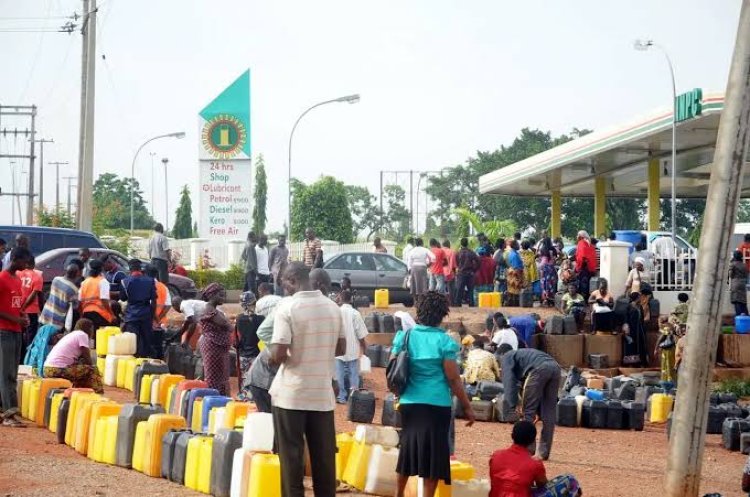Fuel Scarcity Persists in Nigeria Despite Removal of Subsidies
Despite the NNPCL’s assurances of a steady fuel supply, the reality on the ground tells a different story, in major cities like Lagos and Abuja, fuel queues have become common, with numerous stations running dry

Nearly a year since the Nigerian government phased out fuel subsidies, citizens grapple with ongoing fuel shortages and lengthy queues at petrol stations nationwide.
Despite promises of improved market competition and efficiency, the fuel supply chain continues to face complexities and challenges.
President Bola Tinubu's move to eliminate subsidies on May 29, 2023, aimed to decentralize fuel imports under the Petroleum Industry Act 2021, shifting control to the private sector.
However, the transition has encountered hurdles, with private companies struggling to secure foreign currency for imports, leading to reliance on the Nigerian National Petroleum Company Limited (NNPCL) as the primary supplier.
Fuel queues and shortages persist in major cities like Lagos and Abuja, exacerbated by logistical issues and operational shutdowns at filling stations. Prices have skyrocketed, reaching as high as ₦645 per litre in Lagos and ₦724 per litre in Abuja.
While the NNPCL attributes the tight supply to logistical issues being resolved, industry insiders and the Independent Petroleum Marketers Association of Nigeria (IPMAN) cite irregularities hinting at systemic problems.
The scarcity has disrupted daily life, leading to increased transportation costs and inflationary pressures, particularly in regions like Kaduna and Maiduguri, where fuel stations frequently close or hoard fuel, driving up black market prices to ₦1,000 per litre.
Amidst these challenges, there is a growing demand for stable and equitable fuel supply systems, emphasizing the urgency for effective reforms in the petroleum sector.





































